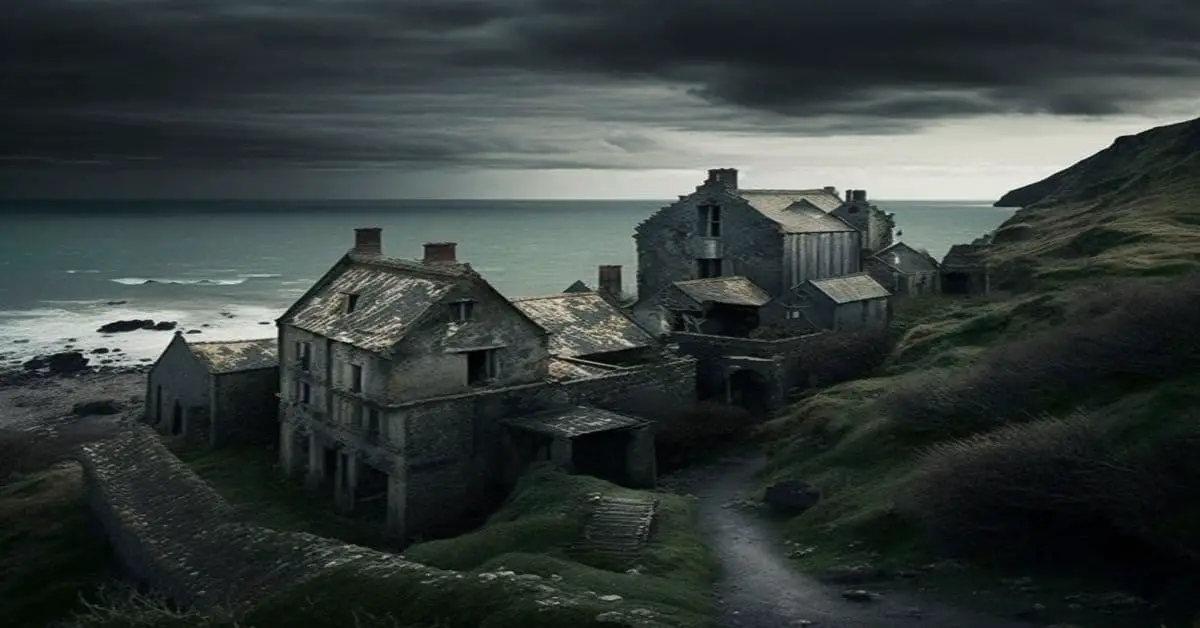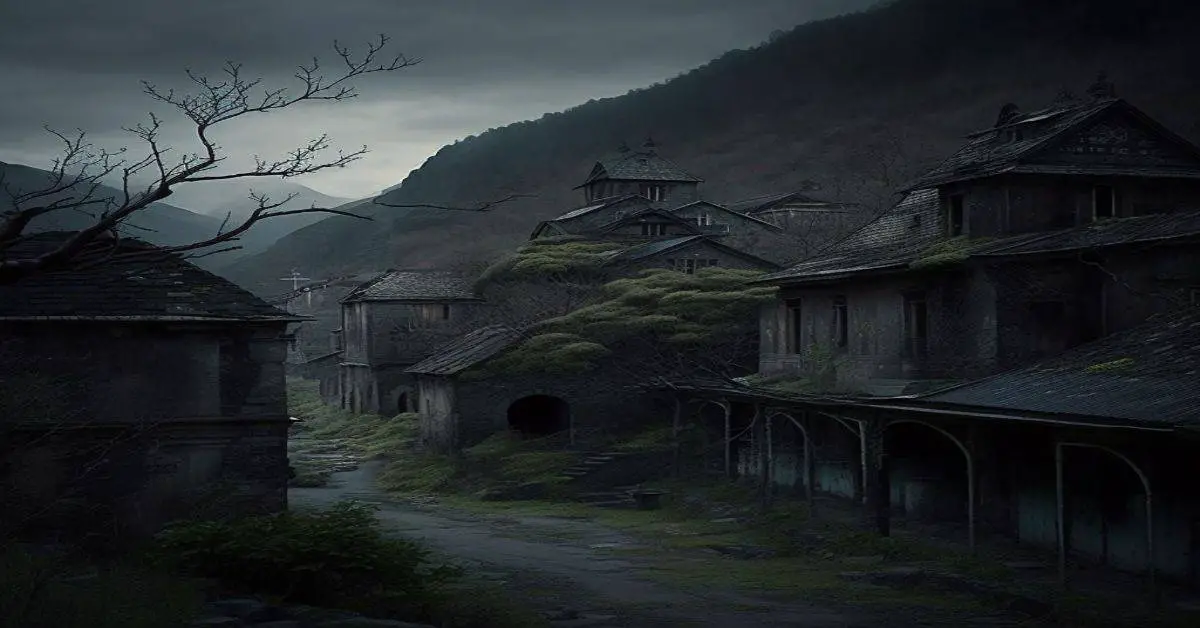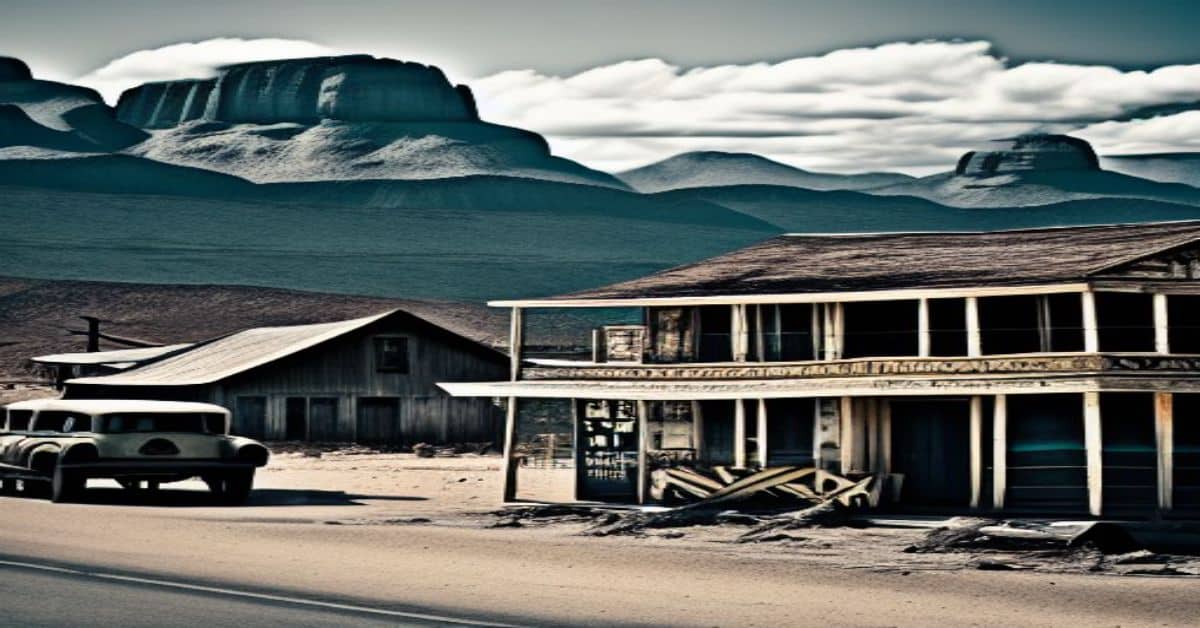Akela, a ghost town in Luna County, New Mexico, is a fascinating destination for travelers interested in history and heritage. Established in the 1880s by railroad officials, Akela was once a thriving trading village that played a significant role in the region’s commercial development.
Today, visitors can explore the remnants of the Akela ghost town’s trading post and post office, which operated from 1922 to 1941, and uncover the town’s rich trading roots.
Akela’s mild weather year-round and accessibility via 2WD roads make it an easy destination to visit anytime. The town’s name is derived from the wolf pack leader in Kipling’s Mowgli stories, adding an element of literary charm to its history.
With its unique blend of history, heritage, and natural beauty, Akela offers visitors a glimpse into the past and a chance to discover the town’s role in the region’s commercial development.
In the following sections, we will delve into Akela’s location and climate, history and name origin, and attractions and tourism, providing an in-depth guide to this fascinating ghost town.
Key Takeaways
- Akela is a ghost town in Luna County, New Mexico, accessible by 2WD roads and situated at the Akela siding on sp rr, 22 miles east of Deming.
- Akela, New Mexico, was established in the 1880s by railroad officials and was once a thriving trading village, with a trading post and post office that operated from 1922 to 1941.
- Akela’s historical significance and the stories of its famous residents continue to intrigue visitors, and ghost town preservation is an important aspect of tourism in the area.
- Visitors to the Akela ghost town can explore the remnants of the town’s past and imagine what it was like to be part of a bustling trading community, gaining insight into the history and culture of the American West.
Location and Climate of Akela, NM
Akela is situated at the Akela siding on sp rr, 22 miles east of Deming, where US 70, 80, and the railroad intersect. This strategic location makes it easily accessible for tourists exploring this ghost town.
Additionally, the mild climate of Akela makes it an ideal destination for visitors to explore anytime of the year. If you are planning a trip to Akela, it is recommended to consider the best times to visit.
While the town can be explored year-round, some tourists may prefer to avoid the summer months when temperatures can reach over 100 degrees Fahrenheit. It is also important to note that Akela can be accessed by 2WD roads and is located on the grid 7.
Nearby transportation options include the Akela Trading Post and the Akela Trading Village, both popular tourist attractions.
“Bowlin’s Akela Flats Trading Post is located on the north side of Interstate 10 (Exit 102) in southern New Mexico. It is about 20 miles east of Deming and about 30 miles west of Las Cruces . At the Akela store, you can browse through the tremendous selection of merchandise offered at all our Bowlin Stores.”
https://www.tripadvisor.com/Attraction_Review-g47009-d10045189-Reviews-Bowlin_s_Akela_Flats_Trading_Post-Deming_New_Mexico.html
History and Name Origin of the Akela Ghost Town
Named in the 1880s by a railroad official or their relative, Akela draws attention as a ghost town with a historical tie to Kipling’s Mowgli stories. The town’s name is believed to have been inspired by the character Akela, the leader of the wolf pack in Kipling’s Mowgli tales. There are, however, other theories regarding the town’s etymology, including one that suggests that Akela may have been named after a Native American chief or a railroad executive’s relative.
Apart from its unique name, Akela is known for its famous residents. In the early 20th century, the town served as a hub for trading activities, and it was home to a trading post of the same name. The post office in Akela operated from 1922 to 1941, providing a vital communication link to the outside world.
Today, while the town may be a ghost town, its historical significance and the stories of its famous residents continue to intrigue visitors who discover its trading roots.
Attractions and Tourism
Akela’s location at the intersection of US 70, 80, and the railroad makes it an easy stop for tourists exploring the area. Despite being a ghost town, Akela still attracts visitors due to its rich cultural significance.
The town was once a trading village with a trading post of the same name nearby. These trading roots are still evident in the town’s layout and architecture. Visitors can explore the remnants of the town’s past and imagine what it was like to be part of a bustling trading community.
Ghost town preservation is an important aspect of tourism in Akela. The town’s history reflects the changing landscape of the American West and preserving it allows visitors to learn about the past.
The town’s location also highlights the importance of transportation in the West. The intersection of multiple roads and the railroad shows the centrality of transportation to the region’s economy and development. Visitors can gain insight into the history and culture of the American West by visiting Akela.
Frequently Asked Questions
What caused the decline of Akela, NM as a bustling trading village?
Factors contributing to Akela’s decline as a bustling trading village remain unclear. Still, the trading post’s closure and the railroad traffic decrease likely impacted surrounding communities. Further research is needed to understand the town’s history fully.
Are there any notable landmarks or structures still standing in Akela, NM?
Amidst the gentle climate of Akela, the abandoned structures still standing hold historical significance. The trading post and remnants of the railroad evoke a sense of nostalgia for a once bustling village.
Is there any evidence of supernatural activity or ghost sightings in Akela, NM?
No evidence of supernatural sightings or paranormal investigations have been reported in Akela. The town’s history is rooted in trading and the railroad, with a post office operating from 1922 to 1941.
Has Akela, NM been used as a filming location for movies or television shows?
Akela has been used as a filming location for several movies and television shows, including “The Man Who Fell to Earth” and “Breaking Bad.” The town’s history and tourism opportunities make it an attractive location for filmmakers.
Are there any local legends or folklore associated with the history of Akela, NM?
Local folklore and cultural significance associated with Akela’s history remain unclear. While the town has a rich trading past and ties to Kipling’s Mowgli stories, no known legends or folklore have been recorded about the ghost town.


